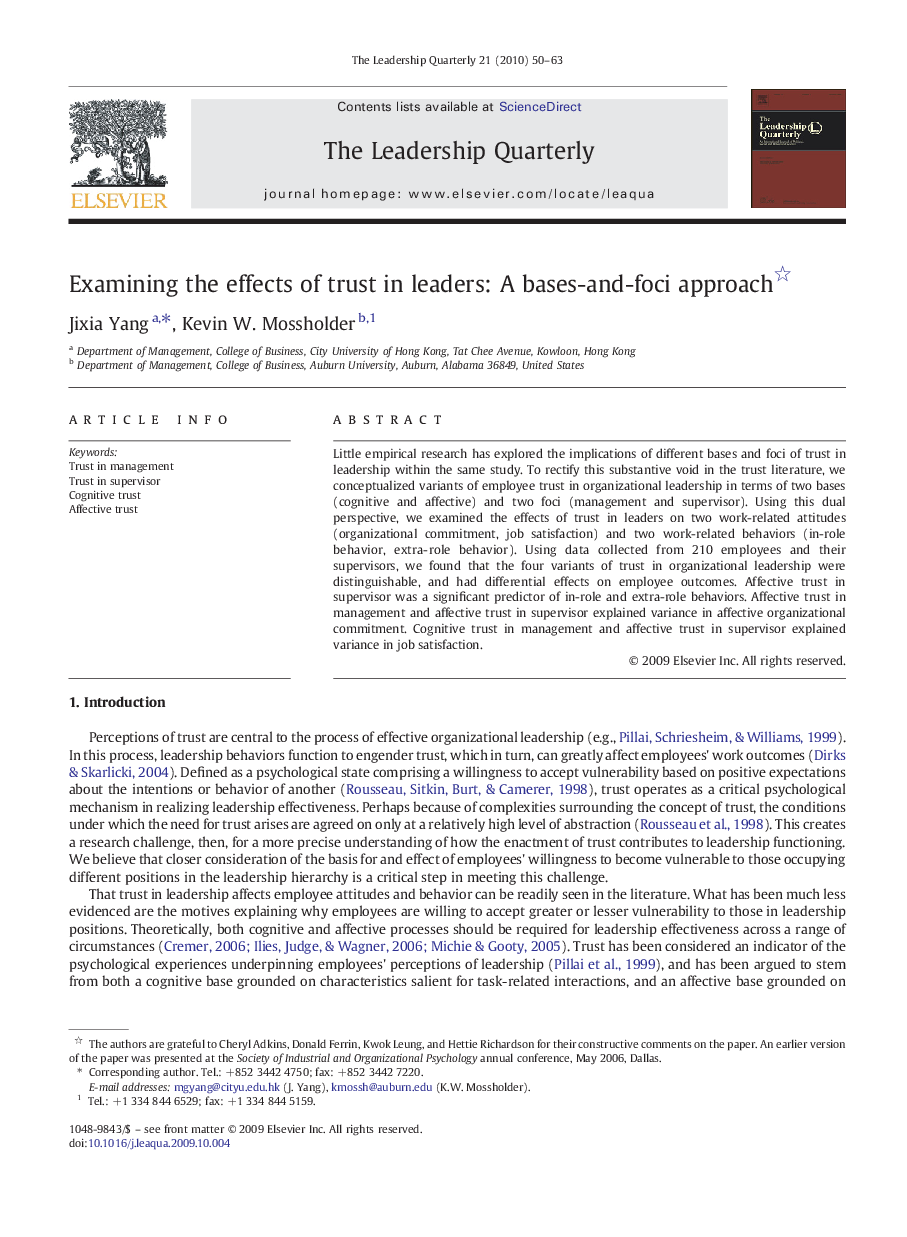| Article ID | Journal | Published Year | Pages | File Type |
|---|---|---|---|---|
| 888024 | The Leadership Quarterly | 2010 | 14 Pages |
Little empirical research has explored the implications of different bases and foci of trust in leadership within the same study. To rectify this substantive void in the trust literature, we conceptualized variants of employee trust in organizational leadership in terms of two bases (cognitive and affective) and two foci (management and supervisor). Using this dual perspective, we examined the effects of trust in leaders on two work-related attitudes (organizational commitment, job satisfaction) and two work-related behaviors (in-role behavior, extra-role behavior). Using data collected from 210 employees and their supervisors, we found that the four variants of trust in organizational leadership were distinguishable, and had differential effects on employee outcomes. Affective trust in supervisor was a significant predictor of in-role and extra-role behaviors. Affective trust in management and affective trust in supervisor explained variance in affective organizational commitment. Cognitive trust in management and affective trust in supervisor explained variance in job satisfaction.
